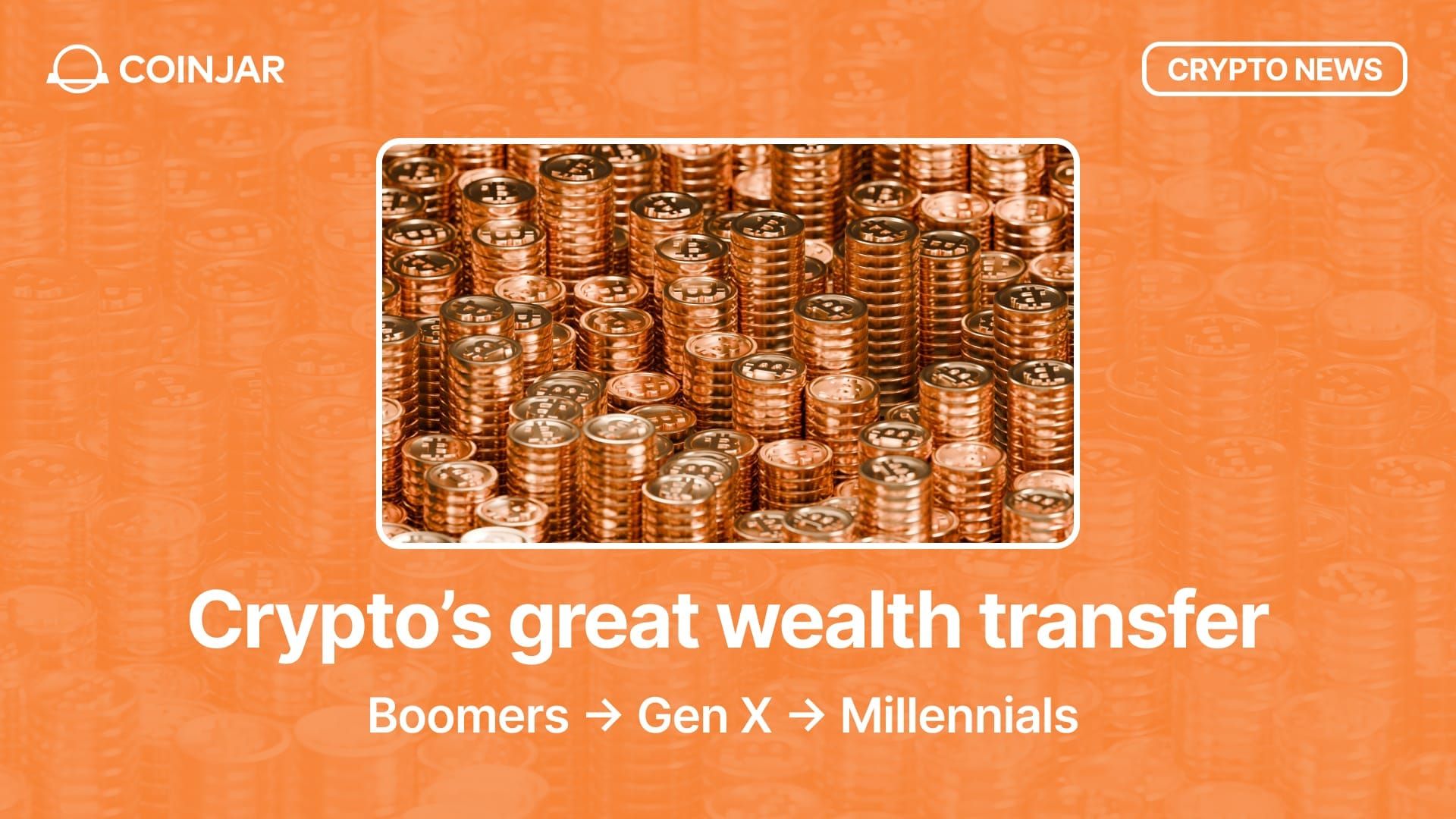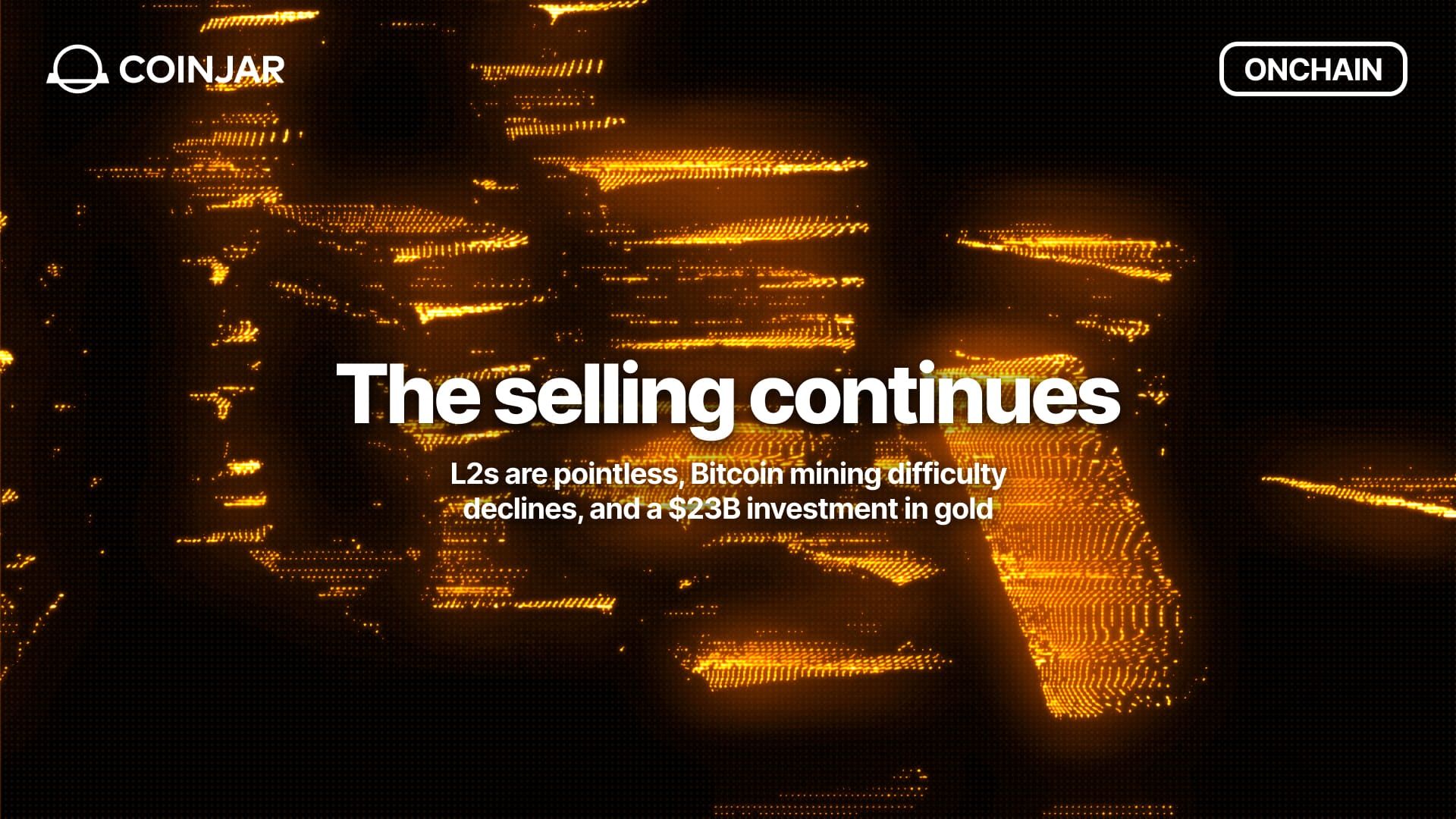Will Wealth Transfer From Boomers Benefit Crypto or Not?
September 29, 2025The upcoming wealth transfer from Boomers to Gen X to Millennials is set to benefit crypto if current trends are anything to go by.
Share this:

Over the next two decades, the largest transfer of wealth in history is set to unfold. More than $124 trillion will move from Baby Boomers to their heirs.
Gen X sits in the middle, inheriting first and then passing wealth down again.
Gen X as the “bridge generation” could play an important role in shaping whether crypto becomes a mainstream part of global portfolios.
For context:
Baby Boomers: Born 1946–1964, they’re 61–79 years old.
Generation X: Born 1965–1980, they’re 45–60 years old.
Millennials (Gen Y): Born 1981–1996, they’re 29–44 years old.
Gen Z follows Millennials, born 1997–2012 (today’s 13–28 year olds).
From Bonds to Stocks: The Last Great Shift
History shows that wealth transfers don’t just move money. They change how money is invested.
In the mid-20th century, older generations held most of their wealth in government bonds. But after inflation eroded bond values and yields fell, younger investors began piling into stocks. Of course, real estate and other assets were in the mix too.
The shift from bonds to stocks, however, helped fuel decades of market growth and reshaped how families built and preserved wealth.
Boomers to Gen X: Stock Market Loyalists
Baby Boomers, who came of age during the longest bull market in history, largely embraced the stocks model. As they accumulated wealth, stocks became the backbone of retirement funds and stock-based portfolios. Now, as Boomers reach the end of their lives, the transferring of assets begins. Gen X is the first in line to inherit.
Gen X is often overlooked, but they’ve had a unique financial journey. They built careers and wealth during the dot-com boom and bust, the housing bubble, and the 2008 financial crisis. They’re comfortable with stocks but also more skeptical of “traditional safety” than their parents.
Some have already dipped into crypto, though often with a cautious approach. This makes Gen X a transitional generation, blending Boomer conservatism with Millennial experimentation.
Millennials and Gen Z: Digital-Native Heirs
Millennials and Gen Z are different again. They grew up with the internet, mobile banking, and digital-first experiences. Surveys show that everyday Millennials and Gen Z are more likely to own crypto and to allocate more to alternative investments than older cohorts. They view Bitcoin and Ethereum not just as investments but as digital-native stores of value. While they do own traditional assets, they are far more open to new investment options like crypto compared to their grandparents.
For these heirs, inheriting a portfolio of only blue-chip stocks may feel a little outdated. Just as stocks became the wealth vehicle of choice for Boomers and Gen X, digital assets may become the natural choice for Millennials. With trillions set to flow into their hands, crypto could shift from a niche allocation to a mainstream one.
Why Digital Assets Will Gain Ground
Heirs in this generational chain are predicted to possibly want:
- Digital-first wealth structures that integrate seamlessly with online life.
- Global mobility, where assets like Bitcoin aren’t tied to one banking system.
- Resilience against inflation or systemic shocks.
Gen X’s gradual adoption may ease this transition, while Millennials and Gen Z could accelerate it. But of course, all generations could reject crypto for something new, or for traditional assets.
Wills and Trusts
Wealth transfer today might not be just about wills and trusts, it could be about adapting to a new mix of assets. That means:
- Educating heirs on secure storage and responsible management of digital assets.
- Updating estate plans to include crypto alongside traditional holdings.
- Providing access so executors and trustees can manage wallets and keys.
- Diversifying allocations to reflect the preferences of heirs.
Wealth Transfer and the Road Ahead
The last great wealth transfer pushed capital from bonds to stocks. This time, trillions will flow from Boomers through Gen X to Millennials and Gen Z. It is hard to know what these next generations will invest in, but crypto could be part of the mix.
Gen X will likely act as a cautious bridge, they may be introducing digital assets into portfolios, while Millennials may be more open to embracing them as a core part of their financial future. They could also go completely out of fashion and enter the graveyard of forgotten investments. But it is worth thinking about as the wealth transfer begins.
The above article is not to be read as investment, legal or tax advice and it takes no account of particular personal or market circumstances; all readers should seek independent investment advice before investing in cryptocurrencies. The article is provided for general information and educational purposes only, no responsibility or liability is accepted for any errors of fact or omission expressed therein. Past performance is not a reliable indicator of future results.
Don’t invest unless you’re prepared to lose all the money you invest. This is a high‑risk investment and you should not expect to be protected if something goes wrong. Take 2 mins to learn more.
Cryptoassets traded on CoinJar UK Limited are largely unregulated in the UK, and you are unable to access the Financial Service Compensation Scheme or the Financial Ombudsman Service. We use third party banking, safekeeping and payment providers, and the failure of any of these providers could also lead to a loss of your assets. We recommend you obtain financial advice before making a decision to use your credit card to purchase cryptoassets or to invest in cryptoassets. Capital Gains Tax may be payable on profits.
CoinJar’s digital currency exchange services are operated in the United Kingdom by CoinJar UK Limited (company number 8905988), registered by the Financial Conduct Authority as a Cryptoasset Exchange Provider and Custodian Wallet Provider in the United Kingdom under the Money Laundering, Terrorist Financing and Transfer of Funds (Information on the Payer) Regulations 2017, as amended (Firm Reference No. 928767).
Share this:
On/Offchain
Your weekly dose of crypto news & opinion.
Join more than 150,000 subscribers to CoinJar's crypto newsletter.
Your information is handled in accordance with CoinJar’s Privacy Policy.
More from CoinJar Blog

Onchain: The selling continues
February 11, 2026Until morale improves, or so I hope. Story One L2s are pointless Tweets the guy who advocated for them as part of the Ethereum scaling roadmap. Perhaps to deflect from his...Read more
Onchain: Lots of things on sale
January 28, 2026Story One Crypto Social for Sale Been an interesting time to observe what happens to the still-standing crypto social networks. Aave, a leading DeFi protocol and creator of...Read more
CoinJar Unlocks European Expansion with MiCA Authorisation
January 22, 2026CoinJar has officially become a crypto asset gateway for Europe, having received full authorisation from the Central Bank of Ireland as a Crypto-Asset Service Provider under...Read moreYour information is handled in accordance with CoinJar’s Privacy Policy.
Cryptoassets traded on CoinJar UK Limited are largely unregulated in the UK, and you are unable to access the Financial Service Compensation Scheme or the Financial Ombudsman Service.
We use third party banking, safekeeping and payment providers, and the failure of any of these providers could also lead to a loss of your assets.
We recommend you obtain financial advice before making a decision to use your credit card to purchase cryptoassets or to invest in cryptoassets. Capital Gains Tax may be payable on profits.
CoinJar’s digital currency exchange services are operated in the UK by CoinJar UK Limited (company number 8905988), registered by the Financial Conduct Authority as a Cryptoasset Exchange Provider and Custodian Wallet Provider in the United Kingdom under the Money Laundering, Terrorist Financing and Transfer of Funds (Information on the Payer) Regulations 2017, as amended (Firm Reference No. 928767).
Apple Pay and Apple Watch are trademarks of Apple Inc. Google Pay is a trademark of Google LLC.
This site is protected by reCAPTCHA and the Google Privacy Policy and Terms of Service apply.